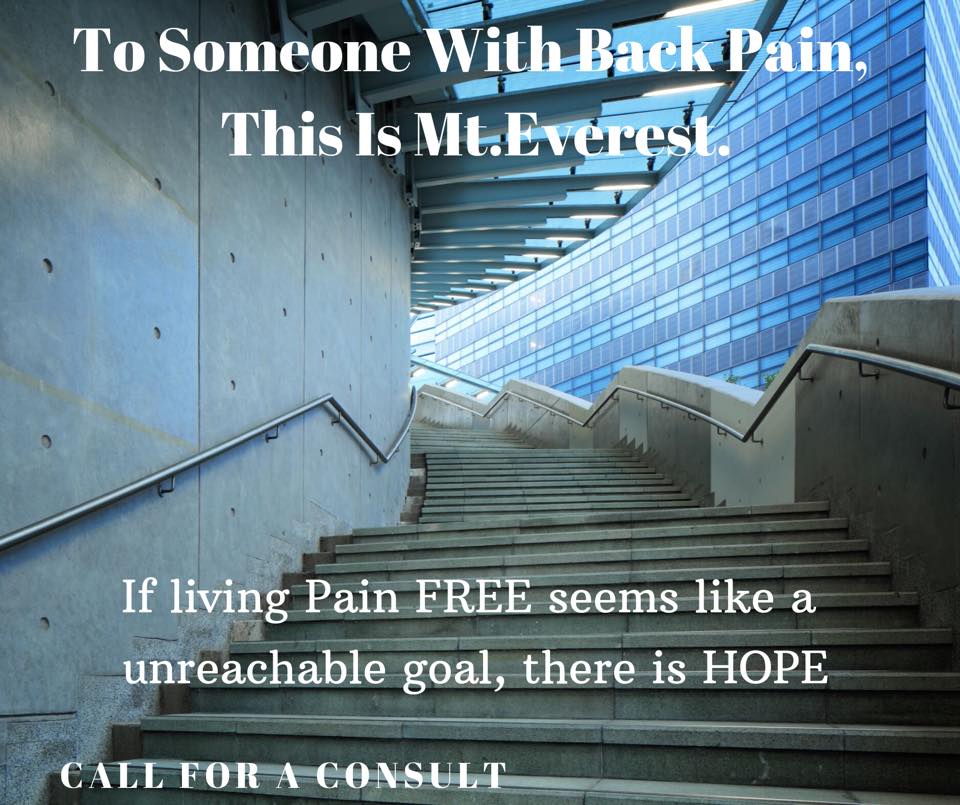- Cloud 9 Acupuncture & Integrative Medicine22 West Padonia Rd. Suite A-203
Timonium, MD 21093 - By Appointment Only
-
Latest Articles:
- • Add These 10 Immune-Boosting Foods to Your Fall Diet •
- • Keep Your Skin Healthy and Glowing with these Fall Skincare Tips •
- • Beat End of Year Burnout with these Fall Self-Care Rituals •
Acupuncture Studies
Acupuncture for Fibromyalgia: Can It Help?
Fibromyalgia is a chronic condition that causes widespread pain and fatigue. It is often accompanied by other symptoms, such as sleep problems, cognitive difficulties, and mood disorders. There is no cure for fibromyalgia, but there are treatments that can help manage the symptoms.
Acupuncture is a traditional Chinese medicine (TCM) treatment that has been used for centuries to treat a variety of conditions, including fibromyalgia. Acupuncture involves inserting thin needles into specific points on the body. When needles are inserted into acupuncture points, it is believed that they can help to balance the nervous system and reduce pain.
There is some evidence that acupuncture can be effective in treating fibromyalgia. A 2018 systematic review of randomized controlled trials found that acupuncture was effective in reducing pain and improving function in people with fibromyalgia. The review also found that acupuncture was well-tolerated and did not have any serious side effects.
Another study, published in 2019, found that acupuncture combined with conventional fibromyalgia treatment was more effective than conventional treatment alone in reducing pain and improving function.
The evidence suggests that acupuncture can be an effective treatment for fibromyalgia. If you are considering acupuncture for fibromyalgia, begin with calling today for a consultation with our doctor.
If you are interested in learning more about acupuncture for fibromyalgia, please visit our website or contact us today. We would be happy to answer any questions you have.

Acupuncture for Rheumatoid Arthritis: How Can It Help?
Rheumatoid arthritis (RA) is a chronic autoimmune disease that causes inflammation in the joints. It can cause pain, stiffness, swelling, and fatigue. There is no cure for RA, but there are treatments that can help manage the symptoms.
Acupuncture is a traditional Chinese medicine (TCM) treatment that has been used for centuries to treat a variety of conditions, including RA. Acupuncture involves inserting thin needles into specific points on the body. These points are believed to be connected to the body’s energy pathways, or meridians. When needles are inserted into these points, it is believed that they can help to balance the body’s energy and reduce inflammation.
There is some evidence that acupuncture can be effective in treating RA. A 2018 systematic review of randomized controlled trials found that acupuncture was effective in reducing pain and improving function in people with RA. The review also found that acupuncture was well-tolerated and did not have any serious side effects.
Another study, published in 2019, found that acupuncture combined with conventional RA treatment was more effective than conventional treatment alone in reducing pain and improving function.
The evidence suggests that acupuncture can be an effective treatment for RA. If you are considering acupuncture for RA, it is important to talk to your doctor first. They can help you decide if acupuncture is right for you and can recommend a qualified acupuncturist.
If you are interested in learning more about acupuncture for RA, please visit our website or call us today. We would be happy to answer any questions you have and help you find a qualified acupuncturist in your area.

Acupuncture for Neuropathy: How Can It Help?
Neuropathy is a condition that affects the nerves, causing pain, numbness, tingling, and other symptoms. It can be caused by a variety of factors, including diabetes, injury, and certain medications.
Acupuncture is a traditional Chinese medicine treatment that has been shown to be effective in relieving the symptoms of neuropathy. It works by stimulating specific points on the body with needles. This helps to improve blood flow and nerve function, which can reduce pain and improve overall well-being.
There are a number of studies that have shown the effectiveness of acupuncture for neuropathy. For example, a study published in the journal Pain found that acupuncture was effective in reducing pain and improving function in people with diabetic neuropathy.
Another study, published in the journal Acupuncture in Medicine, found that acupuncture was effective in reducing pain and improving sleep quality in people with HIV-related neuropathy.
If you are suffering from neuropathy, acupuncture may be a safe and effective treatment option for you. Talk to your doctor about whether acupuncture is right for you.
How Can Acupuncture Help with Neuropathy?
Acupuncture works by stimulating specific points on the body with needles. These points are believed to be linked to the body’s energy system, or meridians. When the needles are inserted, they release chemicals that help to improve blood flow and nerve function. This can help to reduce pain, improve sleep quality, and reduce inflammation.
What Are the Benefits of Acupuncture for Neuropathy?
The benefits of acupuncture for neuropathy include:
- Reduced pain
- Improved sleep quality
- Reduced inflammation
- Improved nerve function
- Increased energy levels
- Improved mood
- Improved nerve function
How Many Acupuncture Sessions Are Needed for Neuropathy?
The number of acupuncture sessions needed for neuropathy will vary depending on the individual. However, most people see improvement after a short time. Each patient is examined for sensory loss at their initial consultation to determine how many treatments are needed for their success.
Is Acupuncture Safe for Neuropathy?
Acupuncture is generally safe for people with neuropathy.
How Can I Find a Qualified Acupuncture Provider for Neuropathy?
Acupuncturists in the state of Maryland attend an accredited graduate school program for 3-5 years before becoming eligible to attain licensure for acupuncture. Not all acupuncturists are trained in how to treat neuropathy, however. Neuropathy is a complex condition that requires extensive additional training, which Dr. Parks has mastered over the last 4 years, with over an 85% success rate in treating neuropathy.

Acupuncture for Chronic Pain, Failed Surgeries, and Autoimmune Conditions
If you’re suffering from chronic pain, failed surgeries, or an autoimmune condition, you’re not alone. Millions of people around the world struggle with these conditions, and they can be incredibly debilitating.
Traditional Western medicine often doesn’t offer much relief for these conditions. In some cases, surgery may be an option, but it’s not always successful. And even when surgery is successful, it often doesn’t address the underlying cause of the pain or condition.
That’s where acupuncture comes in. Acupuncture is a traditional Chinese medicine treatment that has been used for thousands of years to treat a variety of conditions, including chronic pain, failed surgeries, and autoimmune conditions.
Acupuncture works by stimulating specific points on the body with thin, stainless steel needles. This stimulation helps to improve the flow of qi, or vital energy, throughout the body. When the flow of qi is restored, the body is better able to heal itself and reduce pain and inflammation.
There is a growing body of scientific evidence to support the use of acupuncture for chronic pain, failed surgeries, and autoimmune conditions. For example, a study published in the Journal of the American Medical Association found that acupuncture was effective in reducing pain and improving function in people with chronic low back pain.
Another study, published in the Annals of Internal Medicine, found that acupuncture was effective in reducing pain and improving quality of life in people with rheumatoid arthritis.
If you’re considering acupuncture for chronic pain, failed surgeries, or an autoimmune condition, it’s important to find a qualified acupuncturist. A qualified acupuncturist will have extensive training in Chinese medicine and will be able to assess your individual needs.
Acupuncture is a safe and effective treatment for chronic pain, failed surgeries, and autoimmune conditions. If you’re looking for a natural way to relieve your pain and improve your quality of life, acupuncture may be a good option for you.

What’s Our Medical Director Been Up To?
Have you heard? Our Medical Director, Laura Parks, M.Ac., L.Ac. went back to school and will be graduating at the end of April 2023 with her Doctorate in Acupuncture. 13 years after graduating with her Masters degree in Acupuncture, we’ll be calling “Dr. Laura” to the clinic with all her new wisdom on how to help patients.
Here’s what she had to say about her doctorate experience so far: “It’s been so great studying advanced, complex conditions like Lyme’s disease, advanced fertility and gynecological issues, pediatrics, and autoimmune conditions, weighing in with some of the most brilliant minds in the country. Last semester I got to celebrate getting straight A’s in all my classes while juggling family life and running a very busy clinic, all while completing medical internships, studying modern acupuncture research, and learning from live case studies. I’m so grateful for this opportunity to take my training to the next level and serve thousands of patients in the future with this centuries old medicine.”
We can’t wait to see what the future holds upon completing her doctorate this April!
If you’re interested in working with our Medical Director, Laura Parks, this spring, give us a call at 410-847-4766.


